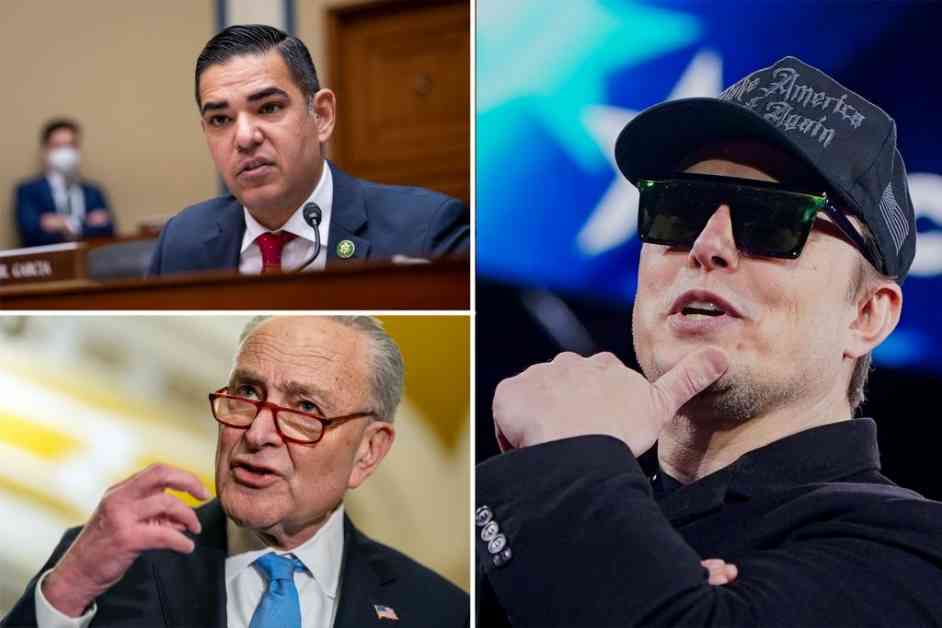The recent investigation into alleged threats made by Senate Minority Leader Chuck Schumer and Rep. Robert Garcia against public officials has sparked controversy and raised questions about the boundaries of political discourse. The Washington, DC, US attorney’s office, under the leadership of interim attorney Ed Martin, has initiated inquiries into comments made by these Democratic lawmakers, particularly directed at Supreme Court justices and entrepreneur Elon Musk.
Alleged Threats and Political Rhetoric
The focus of the investigation revolves around remarks made by Rep. Garcia during a CNN interview, where he expressed strong sentiments about Elon Musk and the ongoing political climate. In a letter addressed to Garcia, Martin highlighted the congressman’s statement referring to Musk as “a d–k” and his call for a more aggressive stance in political battles. The use of such language, especially towards appointed representatives of the government, raised concerns among officials, prompting the need for clarification from Garcia.
Similarly, Senate Minority Leader Schumer faced scrutiny for his comments directed at Supreme Court Justices Neil Gorsuch and Brett Kavanaugh during an abortion rights rally outside the Supreme Court. Schumer’s words, perceived by some as threatening, prompted a response from interim US attorney Martin, urging the senator to clarify his intentions. Despite subsequent explanations from Schumer’s aide, the investigation into these remarks remains ongoing, shedding light on the complexities of political rhetoric and its potential impact.
Legal Implications and Political Discourse
The intricacies of the legal system intersect with the realm of political discourse in cases such as these, where statements made by elected officials can carry significant weight and consequences. The DC US attorney’s office’s prompt action in investigating these incidents underscores the importance of upholding standards of civility and respect in public dialogue. As the investigation unfolds, the role of free speech, accountability, and the boundaries of political expression come into focus, prompting reflections on the responsibilities that accompany positions of influence and power.
In response to the inquiries and scrutiny faced by Schumer and Garcia, the political landscape witnesses a clash between differing interpretations of speech, intent, and impact. The dynamics of political discourse, especially in the age of social media and instant communication, highlight the challenges faced by public figures in navigating the fine line between passionate advocacy and potentially inflammatory rhetoric. As lawmakers continue to engage in robust debates and discussions, the need for thoughtful communication and constructive dialogue remains paramount in fostering a healthy democratic process.
As the investigation into the alleged threats made by Schumer and Garcia unfolds, the nuances of language, context, and intent come under scrutiny, shaping the broader conversation around political discourse and accountability. The outcome of this inquiry will not only impact the individuals involved but also serve as a reflection of the evolving standards and expectations placed on public officials in today’s complex political landscape. The intersection of law, politics, and public perception underscores the delicate balance required in maintaining a robust democracy built on principles of transparency, integrity, and mutual respect.












